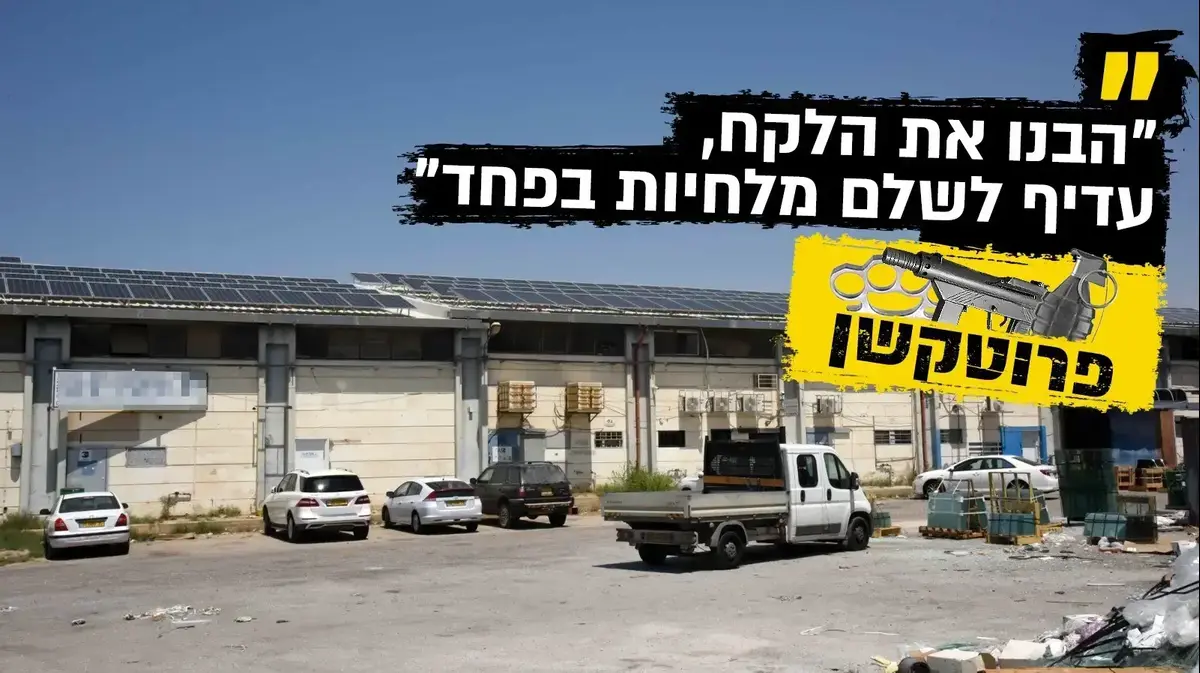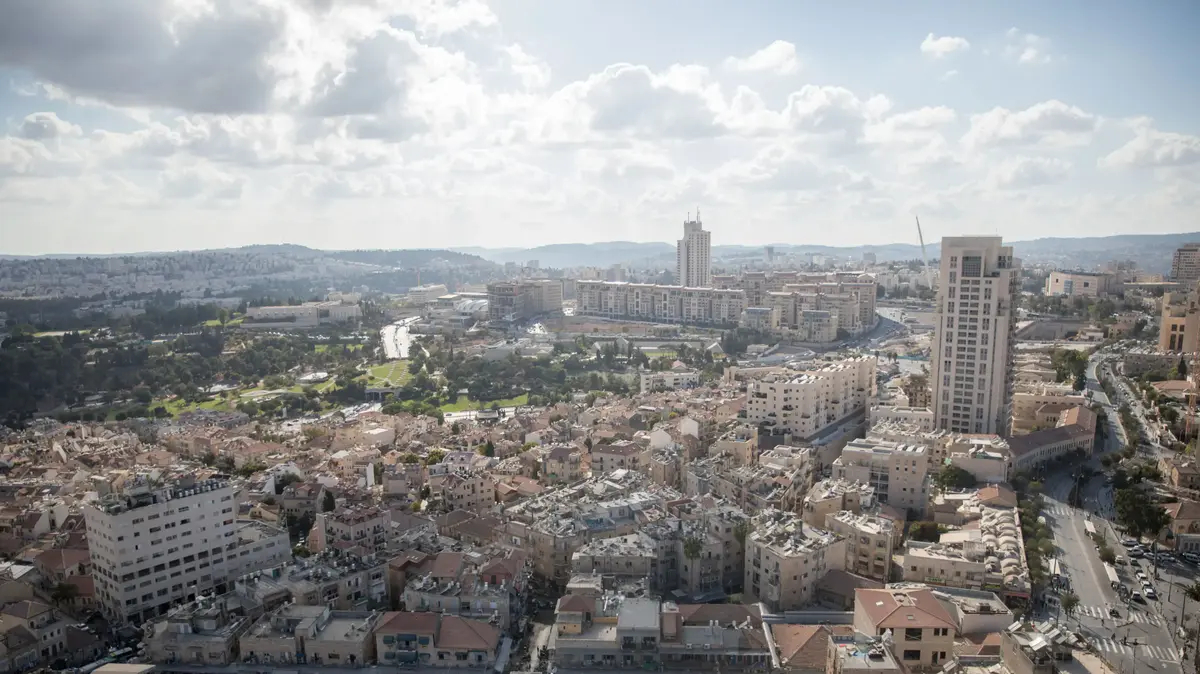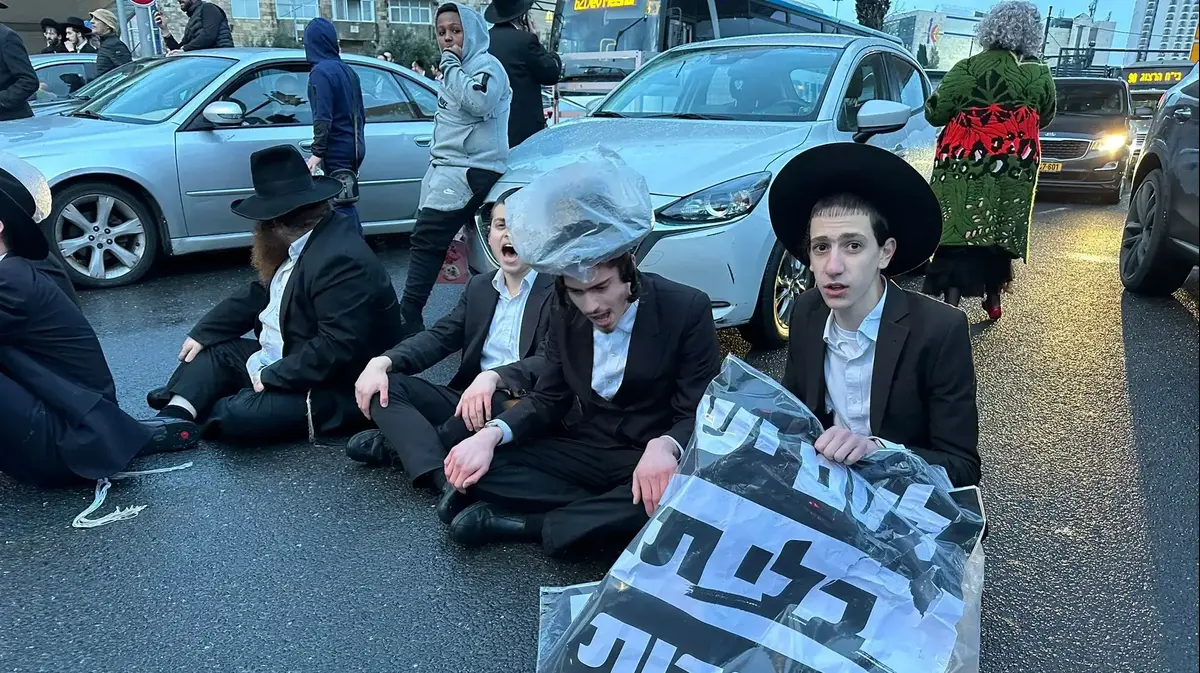news
News in Israel
Criminal news and law
Educational institutions in the south are blackmailed by criminal organizations: "Millions a year for 'guarding'"
The phenomenon of protection not only affects contractors and entrepreneurs in the south, but also affects dozens of educational institutions in Bedouin localities and business owners in Be'er Sheva and Sderot. The method is clear, says a senior official in the Ministry of Education
Tags
Protection money
Protection
The Bedouin sector
Yanir will defend
Monday, 05 July 2021, 12:51
Share on Facebook
Share on WhatsApp
Share on general
Share on general
Share on Twitter
Share on Email
0 comments
The protection phenomenon in the south not only harms contractors and developers in the area, but also succeeds in permeating and influencing educational institutions in the Bedouin sector and business owners.
A senior official in the Ministry of Education, who deals with the Bedouin sector, says that some of the educational institutions in the sector are experiencing vandalism due to non-payment of "guard fees".
"It can not be ignored," Walla said!
The cause.
"There is no security standard in the Bedouin sector. Sometimes there are those who want money for security, so they break it down, destroy it, and then turn to the authorities and say there is a need for security.
The source adds that it is not just about vandalizing property, "there are also thefts of computers. They have only one purpose - to place guards."
"Sometimes there is a different kind of extortion. They want workers from their families to be employed, and if they do not receive it then there is heavy damage. It is vandalism damage of hundreds of thousands of shekels a year."
More on Walla!
"Every family dressed up in a neighborhood - and we pay": behind the protection mechanism in Be'er Sheva
To the full article
More on Walla!
"If you complain to the police they will hurt you": the Bedouin contractor who was blackmailed and forced to pay sponsorship fees
A contractor from the south refused to pay sponsorship fees to the Bedouin.
It ended in damage of hundreds of thousands of shekels
Something new is happening in Tel Aviv: a delicacy celebration at "Mania Delicacies"
"It's clear to all of us that everyone pays."
An educational institution in the recently burned Bedouin posra (Photo: surfers photos)
According to a former senior official in one of the councils in the Bedouin sector, there is a method in which dozens of educational institutions pay the guard fees at night through the councils.
"This is about guarding at night, money that comes from the Ministry of Education to the councils," he says.
"Guards are supposed to come, but they are only supposed to in some cases. In places where there is no guard there is vandalism and destruction, in places where you pay there is no damage. You burn gardens, destroy furniture, pay money to guard and suddenly everything is fine. In the year to guard the nights. "
Nor did a police point, electric gates and cameras help
Along with the phenomenon of collecting protection in educational institutions, the problem of "guarding" services is also felt in the Emek Hashara industrial area south of Be'er Sheva. "I have been paying a 'guard' fee for more than a decade. Although not an amount like contractors, but still NIS 1,500 a month," says a business owner from Sarah Valley.
According to him, his friends in the industrial area also pay similar sums, even though sometimes a guard does not really come at all. "We are not talking about it, but it is clear to all of us that everyone is paying. A few years ago some business owners did not pay, and power cables were cut. So it is better to pay than to live in fear that they will hurt your business or threaten your life."
The police have in the past managed to limit the phenomenon of protection in the Sarah Valley, among other things due to a police point that exists in the place, electric gates installed at the entrances to the industrial area and many cameras that have been installed. "It doesn't help anymore. So it's true that they do not come in groups and walk around here, but the protection continues," says the business owner.
"1,500 shekels a month."
Sarah Valley Industrial Zone (Photo: Reuven Castro)
The phenomenon of protection is also felt in Sderot, whose residents consistently suffer from rockets and red color alarms.
"We started renovating a building, and after a few days we saw damage to the site and the demolition of equipment worth tens of thousands of shekels," says a resident of the south.
"We understood the lesson and turned to security. For two and a half months there was no damage, and then when we announced that the renovation was finished and that a tenant came in next month - there was vandalism in the place again, damage of tens of thousands of shekels again."
According to him, contractors who build apartments in Sderot also talk about paying the sponsorship fee: "I pay thousands of shekels for guarding Sderot, everyone pays, and there is no guard at all. But I would rather pay than have them cause me damage."
Share on Facebook
Share on WhatsApp
Share on general
Share on general
Share on Twitter
Share on Email
0 comments








/cloudfront-eu-central-1.images.arcpublishing.com/prisa/XCA4CVL2DZHTHIBQ6Q2XMP2JGY.jpg)